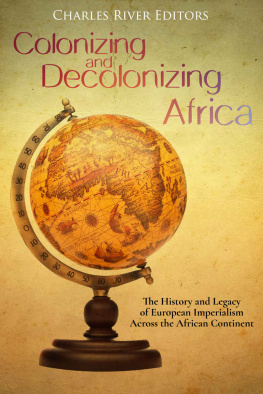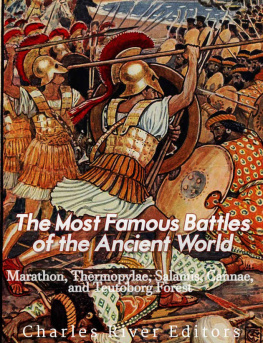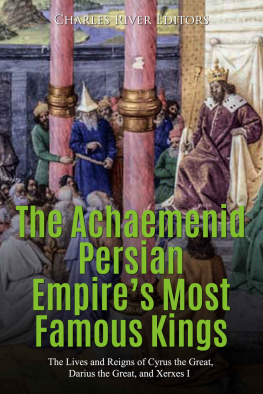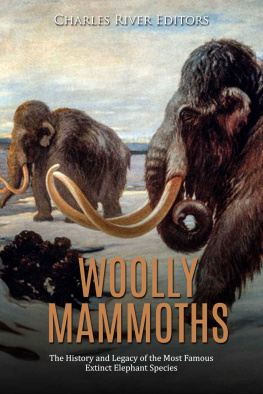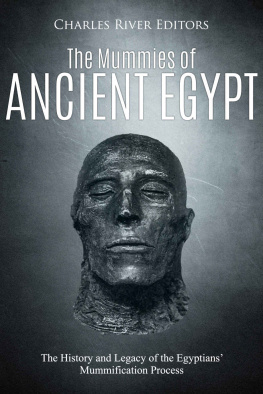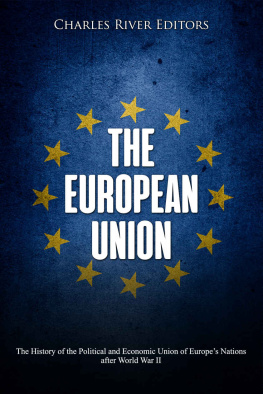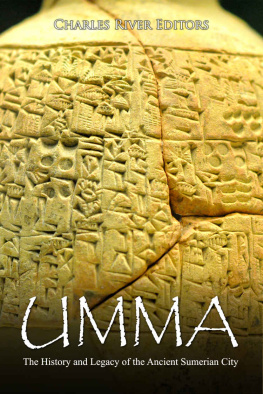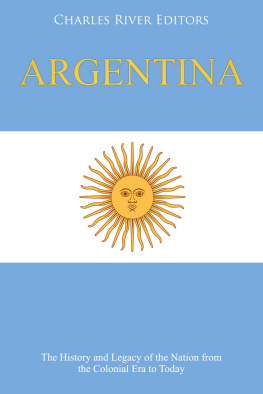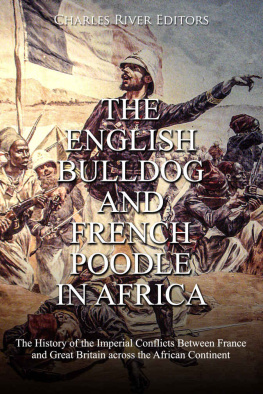Charles River Editors - Colonizing and Decolonizing Africa: The History and Legacy of European Imperialism across the African Continent
Here you can read online Charles River Editors - Colonizing and Decolonizing Africa: The History and Legacy of European Imperialism across the African Continent full text of the book (entire story) in english for free. Download pdf and epub, get meaning, cover and reviews about this ebook. year: 2017, publisher: Charles River Editors, genre: Romance novel. Description of the work, (preface) as well as reviews are available. Best literature library LitArk.com created for fans of good reading and offers a wide selection of genres:
Romance novel
Science fiction
Adventure
Detective
Science
History
Home and family
Prose
Art
Politics
Computer
Non-fiction
Religion
Business
Children
Humor
Choose a favorite category and find really read worthwhile books. Enjoy immersion in the world of imagination, feel the emotions of the characters or learn something new for yourself, make an fascinating discovery.
- Book:Colonizing and Decolonizing Africa: The History and Legacy of European Imperialism across the African Continent
- Author:
- Publisher:Charles River Editors
- Genre:
- Year:2017
- Rating:3 / 5
- Favourites:Add to favourites
- Your mark:
- 60
- 1
- 2
- 3
- 4
- 5
Colonizing and Decolonizing Africa: The History and Legacy of European Imperialism across the African Continent: summary, description and annotation
We offer to read an annotation, description, summary or preface (depends on what the author of the book "Colonizing and Decolonizing Africa: The History and Legacy of European Imperialism across the African Continent" wrote himself). If you haven't found the necessary information about the book — write in the comments, we will try to find it.
Colonizing and Decolonizing Africa: The History and Legacy of European Imperialism across the African Continent — read online for free the complete book (whole text) full work
Below is the text of the book, divided by pages. System saving the place of the last page read, allows you to conveniently read the book "Colonizing and Decolonizing Africa: The History and Legacy of European Imperialism across the African Continent" online for free, without having to search again every time where you left off. Put a bookmark, and you can go to the page where you finished reading at any time.
Font size:
Interval:
Bookmark:
By Charles River Editors

The Rhodes Colossus Striding from Cape Town to Cairo , a cartoon that appeared in Punch , December 10, 1892

Charles River Editors provides superior editing and original writing services across the digital publishing industry, with the expertise to create digital content for publishers across a vast range of subject matter. In addition to providing original digital content for third party publishers, we also republish civilizations greatest literary works, bringing them to new generations of readers via ebooks.
Sign up here to receive updates about free books as we publish them , and visit Our Kindle Author Page to browse todays free promotions and our most recently published Kindle titles.

Contemporary illustration of Major Marchand's trek across Africa in 1898
The Scramble for Africa
The British South-African Company's shares
May be at a discount(Trade-martyrs!trade-martyrs!)
But he, our Colossus, strides on, he declares,
Whether with or without chums or chartersor charters.
Hooray! We brave Britons are right now to the front
Provided we've someone to boss usto boss us;
And Scuttlers will have their work cut out to shunt
This stalwart, far-striding ColossusColossus! Excerpt from an editorial in Punch , December 10, 1892
The modern history of Africa was, until very recently, written on behalf of the indigenous races by the white man, who had forcefully entered the continent during a particularly hubristic and dynamic phase of European history. In 1884, Prince Otto von Bismark, the German chancellor, brought the plenipotentiaries of all major powers of Europe together, to deal with Africa's colonization in such a manner as to avoid provocation of war. This eventknown as the Berlin Conference of 1884-1885galvanized a phenomenon that came to be known as the Scramble for Africa. The conference established two fundamental rules for European seizure of Africa. The first of these was that no recognition of annexation would granted without evidence of a practical occupation, and the second, that a practical occupation would be deemed unlawful without a formal appeal for protection made on behalf of a territory by its leader, a plea that must be committed to paper in the form of a legal treaty.
This began a rush, spearheaded mainly by European commercial interests in the form of Chartered Companies, to penetrate the African interior and woo its leadership with guns, trinkets and alcohol, and having thus obtained their marks or seals upon spurious treaties, begin establishing boundaries of future European African colonies. The ease with which this was achieved was due to the fact that, at that point, traditional African leadership was disunited, and the people had just staggered back from centuries of concussion inflicted by the slave trade. Thus, to usurp authority, to intimidate an already broken society, and to play one leader against the other was a diplomatic task so childishly simple, the matter was wrapped up, for the most part, in less than a decade.
There were some exceptions to this, however, the most notable of which was perhaps the Zulu Nation, a centralized monarchy of enormous military prowess that required a British colonial war, the much storied Anglo-Zulu War of 1879, to affect pacification. Another was the amaNdebele, an offshoot of the Zulu, established as early as the 1830s in the southeastern quarter of what would become Rhodesia, and later still, Zimbabwe, in the future. Both were powerful, centralized monarchies, fortified by an organized and aggressive professional army, subdivided into regiments, and owing fanatical loyalty to the crown. The Zulu were not dealt with by treaty, and their history is perhaps the subject of another episode of this series, but the amaNdebele were, and early European treaty and concession gatherers were required to tread with great caution as they entered their lands. It would be a long time before the inevitable course of history forced the amaNdebele to submit to European domination. Although treaties and British gunboat diplomacy played a role, it was ultimately war, conquest, and defeat in battle that brought the amaNdebele to heel.
Despite this, the amaNdebele, notwithstanding their eventual military defeat, commanded enormous respect from the British. This was also true with the Zulu. The British were a martial nation themselves, and they saw the concept of the "Noble Savage" as the romance of a bygone age, offering up the esteem due to a ruling aristocracy, according to the rules of chivalry. With the defeat of the amaNdebele in 1893in a war that has come to be known as the Matabele War agents of the British South Africa Company, as they assumed full administrative control of the territory, also established a rule of lionizing the amaNdebele. It became fashionable to mythologize the amaNdebele's noble origins, their courage and virtuosity in battle, and their incorruptible adherence to the Spartan code of war.
The U.S. Naval Station Argentia, located in Placentia Bay, a sheltered harbor on Newfoundland Island, was the unlikely setting for one of the most pivotal summit meetings of the 20th century. The meeting took place on August 9, 1941. World War II was in its second year, the British had won the Battle of Britain, but were still encircled by German U-Boats, and the British fleet was being decimated in the North Atlantic. In North Africa, a contest of armor was underway as Axis and Allied armies fought for control of Egypt, while Britain and her Commonwealth allies stood alone against the mighty German Wehrmacht.
The British desperately needed more U.S. armaments and supplies, but most importantly, for the U.S. to throw its lot in with the Allies and join the war. In January of that year, President Franklin D. Roosevelt was sworn into office for his third term, realizing at last that U.S. isolationism was no longer a practical policy in a rapidly changing world. Roosevelt made no secret of his support for Britain and China, but grounds for bringing the United States into the war would not fully come until December 7, 1941, when the Japanese launched their infamous surprise attack on Pearl Harbor.
Roosevelt, however, pictured a very different post-war world than his British counterpart, Winston Churchill. When he and Churchill met at what came to be known as the Atlantic Conference, Churchills pleas for U.S. manpower and aid were accepted, but only under clear conditions. If the United States was to come to the aid of Britain, it would be for the purpose of defeating the Germans and the Japanese and not to support the insupportable institutions of empire. Britain and, by extension, France and Portugal, the only remaining major European shareholders in foreign empire, would have to commit to decolonization as a basic prerequisite of substantial U.S. assistance.
Churchill, a vocal and forceful proponent of empire and a man of the generation that had conquered the world, did not receive this news well. On the other side of the world, British and allied European Asian colonies lay very much in the path of the Japanese imperial march into Southeast Asia. However, as the inevitability of war grew daily, the nationalist movement in India was also beginning to gather pace. Without India and Indian manpower, war with Japan would be lost before it could begin. The Indians in a sense could hold the British hostage, and ultimately, in exchange for Indian cooperation in the war, the British would first have to commit to a post-war independence process.
Font size:
Interval:
Bookmark:
Similar books «Colonizing and Decolonizing Africa: The History and Legacy of European Imperialism across the African Continent»
Look at similar books to Colonizing and Decolonizing Africa: The History and Legacy of European Imperialism across the African Continent. We have selected literature similar in name and meaning in the hope of providing readers with more options to find new, interesting, not yet read works.
Discussion, reviews of the book Colonizing and Decolonizing Africa: The History and Legacy of European Imperialism across the African Continent and just readers' own opinions. Leave your comments, write what you think about the work, its meaning or the main characters. Specify what exactly you liked and what you didn't like, and why you think so.

